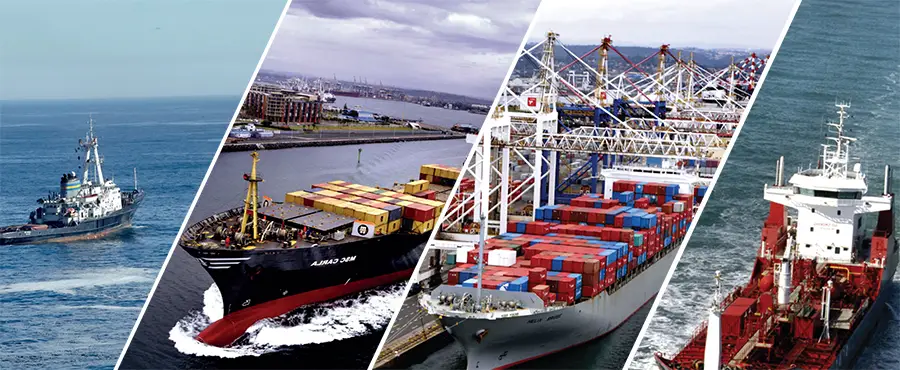- Red Sea shipping disruptions by Houthi rebels stemming from the Israel -Palestine dispute in the Gaza Strip.
- Simultaneously, transits around the Cape of Good Hope are up by a nearly similar amount in the same period.
- Since the first attack in November last year, data shows the numbers have risen to about 68 as of March 12.
The East African region is still at risk of future global shocks as continued Red Sea shipping disruptions and attacks on cargo vessels by Houthi rebels could likely dent the current ease in the cost of living in Kenya, with analysts predicting an increase in fuel prices.
This is likely to negate the calmness in inflation witnessed in the past three months, when the country recorded a decline in fuel and some food item prices, bringing down the level of inflation to 5.7 per cent in March.
The attacks that are stemming from the Israel -Palestine dispute in the Gaza Strip are approaching six months.
Last week, Brent crude price climbed above $90 per barrel for the first time since October last year, despite easing to sell at $73.24 a barrel in December.
Data by Market Watch shows a barrel is now selling at $90.33, with the ripple effect expected on other commodities in the medium to long term.
Experts are now warning that until there is a ceasefire agreement in Gaza, we are likely to see continued attacks on the world’s most important route for oil, liquefied gas as well as food commodities.
Last week, the Central Bank of Kenya’s Monetary Policy Committee (MPC) said Red Sea shipping disruptions is the main obstacle facing the government’s effort to cut overall inflation towards the five per cent mid-point of the target range.
According to the banking regulator, the main risks to global growth and inflation are related to the potential escalation of geopolitical tensions, particularly the Israel-Palestinian and Russia-Ukraine conflicts.
“A key risk to inflation is international oil prices, which have trended upwards since January 2024 largely driven by disruptions to shipping through the Red Sea, and production cuts by OPEC+ and other allied oil producers,” CBK said.
Red Sea Shipping Disruptions
Since the first attack by Houthi rebels in November last year, data shows the numbers have risen to about 68 as of March 12.
The US government and other international media reports indicate that incidents have further damaged three dozen ships since late March.
Even so, the Houthis, supported by the Iranian government, have vowed to continue with the attacks until Israel ends aggression in the contested Gaza Strip.
These attacks would likely hurt import-reliant countries in Africa and other parts of the world.
General inflation was expected to ease in the whole of 2024 after more than 18 months of interest rate hikes by central banks, the most aggressive monetary tightening in decades, but attacks by Houthi rebels are threatening to push up the cost of living again.
Read also: Costly voyages: Will EAC shoulder the burden of Houthi rebels in the Red Sea?
Inflation to continue declining
Despite the attacks, CBK says Kenya’s inflation will continue declining soon, supported by lower food and fuel prices and pass-through effects of the recent exchange rate appreciation.
This saw the MPC retain the benchmark rate of 13 per cent but noted that it will closely monitor the impact of the policy measures and developments in the global and domestic economy and stands ready to take further action as necessary in line with its mandate.
Even so, as Kenya remains optimistic, the geopolitical tensions continue to disrupt global trade, sending shipping and insurance costs up, with traders passing the additional bills on consumers.
Data by the International Monetary Fund shows attacks have consequently increased container freight rates with several factors behind them.
According to the lender, the costs associated with longer transits for ships traveling via the Cape of Good Hope are higher.
“Those longer journeys are removing shipping capacity from the market, resulting in a nearly 10 per cent jump in vessel demand, along with higher rates in what would otherwise be a slumping market,” IMF says.
It adds that some shippers still using the Suez Canal face higher costs in the form of spiking insurance and security costs, especially for onboard security personnel and increased hazard wages for seamen facing new risks.
As a result, container freight rates have gradually increased since November last year.
Data by Statista shows the global freight rate for a 40-foot container hit over $3,900 (Sh508,000) in February 2024, the highest value on record, before decreasing slightly in March.
Just before the onset of the Red Sea shipping disruptions in October, the container rate was going at just about $1,342 (Sh175,000). This has since occasioned big shifts in the shipping industry.
Transits through the Suez Canal before the Houthi campaign hosted 12 per cent of global sea trade, including a 30 per cent share of container vessels.
As the Houthi attacks escalate transits through the Suez Canal are declining from a weekly average of 74 ships in 2023 to about 35, more than half, in recent weeks. Simultaneously, transits around the Cape of Good Hope are up by a nearly similar amount in the same period.
Read also: EU backs Djibouti in regional connectivity, increased trade
